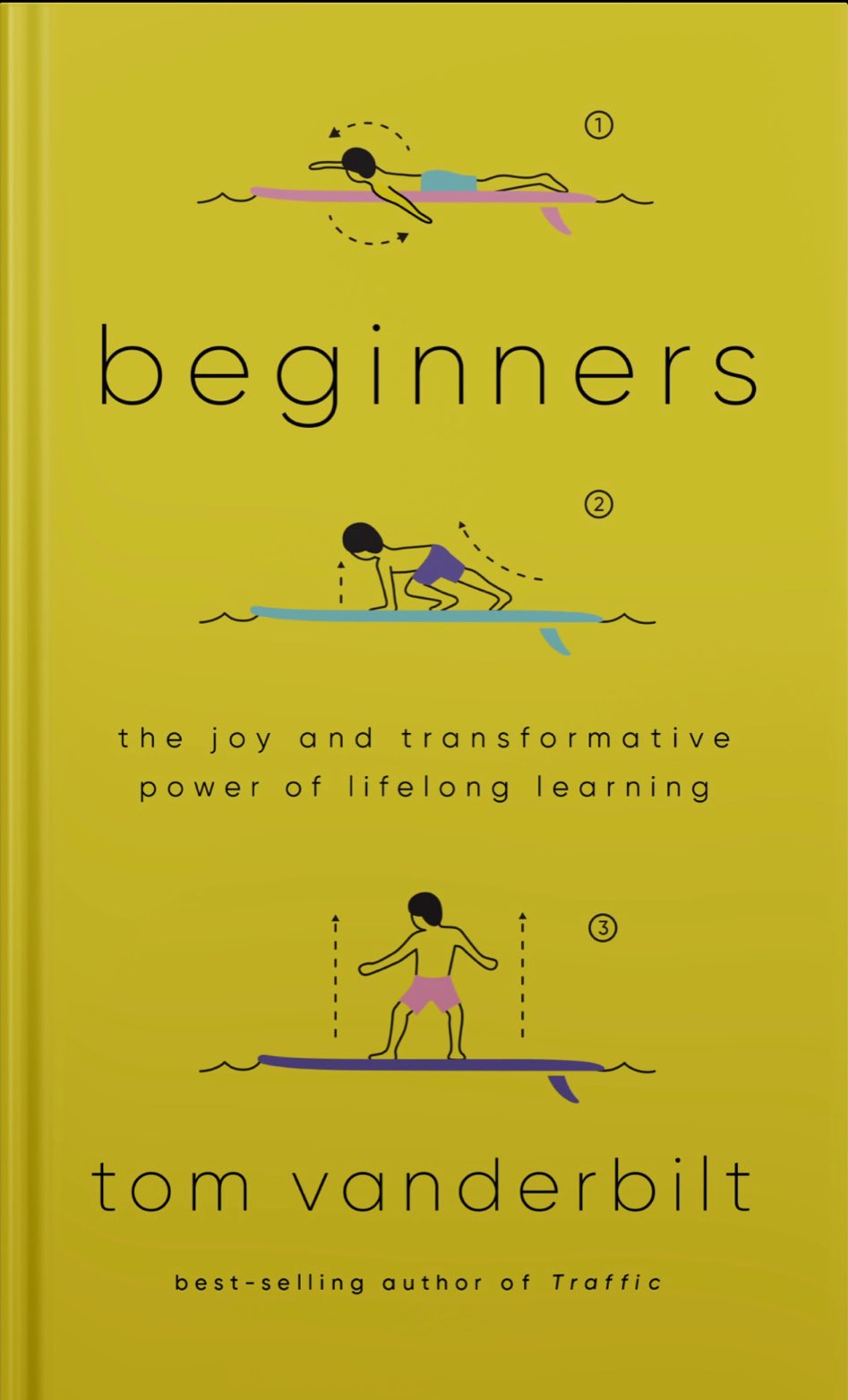Book Review: Beginners by Tom Vanderbilt
Did you know you can whistle more accurately than you can sing? Do you know why?
OR
Most of us have difficulty copying a drawing of a face. Turn it upside down and it becomes much easier!! Do you know why?
OR
Students who studied both science and arts – a relative rarity – were much more likely to later assume leadership roles?
Well, the reason I picked up this book is my desire to learn new skills every other year or so. I was looking for a book that delves into the learning process itself. I had to believe that at a first derivative level, learning lessons must follow similar patterns regardless of the skill. And if I understood those patterns, learning might become easier as I keep getting old.
The book does not disappoint. For one, it is written by a journalist – who tend to have a flair for writing. For another, he himself has picked up a lot of new skills – playing chess, singing, swimming, surfing, juggling, drawing – at a fairly high level at a fairly old age.
The book started a little slow for me – I was okay with the story telling – but I was looking for some insights. The speed picks up in the subsequent chapters. There is one chapter that is fully dedicated to understanding the learning process and how at old age, we make learning difficult for ourselves.
Some interesting insights about being a beginner:
1. A man progresses in all things by making a fool of himself – GB Shaw
2. Becoming a first-time parent is one of the more fundamental experiences of being a beginner
3. In the beginner’s mind there are many possibilities; in the experts mind there are few – Shunryu Suzuki
4. Students who studied both science and arts – a relative rarity – were much more likely to later assume leadership roles.
Why we stop learning new things:
1. What is admired in today’s society is success, achievement and the quality of performance rather than the quality of experience – Mihaly Csikszentmihalyi
2. The idea of undertaking new pursuits, ones that you may never be very good at, seems perverse in this age of single-minded peak performance.
3. “To permit yourself to do only that which you are good at, is to be trapped in a cage whose bars are not steel but self-judgment”
4. Much of our pain in learning, argues Barbara Oakley, comes from getting hung up on results.
Some considerations towards learning:
1. We all have latent abilities that can be unlocked
2. Skills take time
3. Failure is an essential part of learning
4. Change up your practice
5. Your progress is not going to be linear
6. Skills rarely “transfer”
7. Always be on the edge of the impossible (if it feels easy, you’re probably not learning)
8. Learning new skills helps open new worlds.
9. Goals are good, but keep your eyes open for opportunity
Interesting things I learnt about singing:
1. Weirdly, whispering usually puts more strain on the vocal folks than speaking
2. We do not have as much control over our mouth as over our larynx. In fact, we can whistle more accurately than we can sing
3. The vowel is the voice. The consonant is the interruption of the voice
Dreyfus model of learning:
1. Beginners are always looking at themselves. We do worse at an activity when we focus on ourselves, instead of some “external” target
2. Beginners judge their performance by how well they follow the rules.
3. If beginners are about learning rules, advanced beginners are about actually applying those rules. That also involves when not to apply those rules or how to act when no rule seems to apply.
4. There are often, in moments of anxiety, a disconnect in skills learning between instinct and proper technique… hitting high notes, you bend your knees and dip down, in skiing, you lean forward not to fall, in motorcycling, you push the handle left to go left, in surfing, you punch the accelerator when the brain says brake.
Interesting things I learnt about juggling:
1. One way to improve learning, research suggests, is to make skills seem easier in the beginning (juggle slowly).
2. The key to learning juggling is not thinking. Thinking gets in the way of learning.
3. Sleep, or even a short rest, is one of our best learning tools.
4. The brain wants to be puzzled and learn something new. It likes learning for learning’s sake. Taking gaps in learning – and making mistakes again – solidifies learning.
5. Drawing is said to be a good way to actually acquire knowledge because the act of drawing adds another layer of memory encoding our brain.
Interesting things I learnt about drawing:
1. Copying a drawing of a face is much easier if you just turn it upside down! The brain is not hamstrung by the “meaning” of it anymore! What people drew was more influenced by the symbols in their minds than what was on the page.
2. If you look in a crowded room, all heads appear of same size (called size constancy). Try to draw all heads of same size and something will look wrong on the page. Now draw the heads to their actual dimensions and the brain will see the drawing and still see them all sat the same size!
3. Drawing is not hard. Seeing is!!
Some final points from the author:
1. One of the almost inevitable by products of learning new things is the spillover effect of wanting to learn more new things…
2. The most important lesson was that it was never too late to be a beginner
Two thumbs up from me!!!
